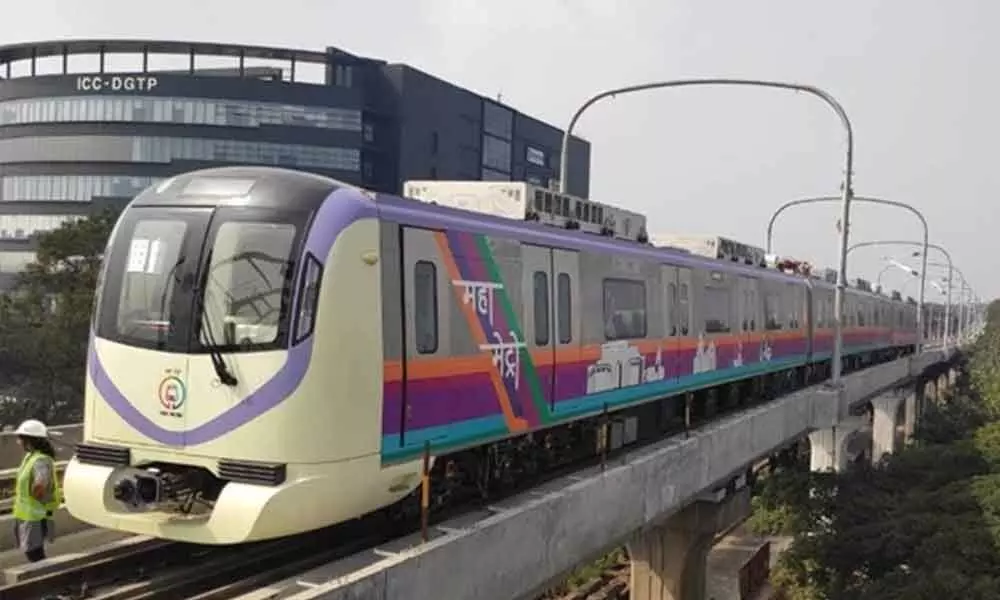PayCraft is official ticketing partner for Pune Metro
The indigenous, PayCraft, is an end-to-end ticketing and payment solution provider for Pune metro via “One Mobile App” and “Common Mobility Card” for commuters not just in Pune but across India
image for illustrative purpose

Mumbai: In a first, Paycraft, a 100 per cent home grown MSME, successfully completes the deployment of State-of-the-Art ticketing and payment solutions at upcoming Pune metro project. This is Atma Nibhar Bharat ka pehla swadeshi Ticketing solution. This grand Project was inaugurated by Prime Minister Narendra Modi in Pune recently.
PayCraft is an end-to-end ticketing and payment solution provider for Pune metro. We were tasked to build "One Mobile App" and "Common Mobility Card" for commuters and their needs not just limited to Pune but across India. With this objective, PayCraft has built the ticketing and payment product that shall enable the commuters to do ticketing via a) QR code: that conforms with C-DAC specifications for ensuring interoperability with multiple modes of transport and b) NCMC compliant card: based on NPCI and C-DAC specifications that can be used in Pune metro and any other transit operator conforming to NCMC standards. We are moving towards the objective of eliminating cash and bringing convenience to the commuters by reducing their touchpoints before they finally travel.
Talking to Bizz Buzz, Ravi Jain (CEO, Paycraft) says, "We are likely to close the current fiscal with an annual turnover of Rs 40 crore and we are planning to make it to Rs 80-90 crore by the end of the next fiscal."
Paycraft is also providing ticketing solutions to BRTS projects in Ahmedabad and Surat at present and it has plans to be the ticketing partner for the forthcoming Metro projects in Mumbai and Chennai.
Moreover, Jain said, we are expanding our base in abroad too what with we are already having one office at UAE currently. The company has plans to have its operations in Africa too in future.
The first metro project in the country wherein the ticketing and payment system is 100 per cent Swadeshi. This sector has been predominantly dominated by international players or by the partnerships between domestic and international players. With the vision of the PM and ministries, today we stand tall with large international companies on whom we had to rely on in the past.
The first fully cashless kiosk will be launched soon. It will have the capabilities of making payments via digital channels including UPI. Delhi metro had been the first one in the country to introduce Ticket Vending Machines (TVM) that had options for making payment using cash or cards. Since then, digital payments have grown significantly but the solution to bring all digital payments under one box was amiss.
However, with Pune metro's revolutionary vision, we are bringing in the change that will put us way of ahead of times.
The mobile QR code App developed by Paycraft for Pune commuters enables digital ticketing. This app allows the customers to select his source and destination of travel, make payment online through UPI, net banking, and card. Instantly a digital QR ticket is generated on the mobile app which is scanned at the metro gate and allows him/her to travel. Also, for the first time ever Pune metro has a unique feature for its citizens developed by Paycraft as Last Mile Connectivity. This feature enables the citizens of Pune to travel using multiple modes of transportation for their daily commute.
Jain added, "Ticketing-as-a-service (TAAS) is the future of ticketing and payments globally. As PayCraft, we would like to become "Android" of the ticketing world wherein customers can seamlessly travel across multiple modes of transportation using the mobile app of their choice.
This will bring amazing travel experience to the commuters. We believe the public transport operators will also open gradually to understand that ticketing can be aggregated and offered for multiple consumers facing digital apps if they move towards an open framework of sharing their fare policies. This is critical for ensuring that technology then transforms the way people travel."

